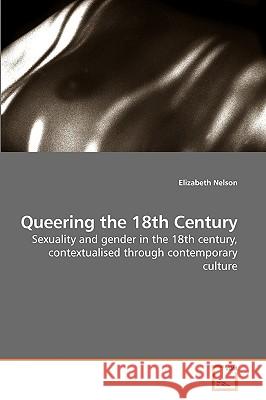Queering the 18th Century » książka
Queering the 18th Century
ISBN-13: 9783639136128 / Angielski / Miękka / 2010 / 56 str.
Issues of class, gender and identity have long been of interest in cultural studies. The concept of gender is considered a cultural difference, characteristically placed in opposition to the concept of sex, a biological difference. To understand gender it needs to be considered in a social context, as it is fundamental to the process of social classification. Masculinity and femininity are not necessarily innate, but are constructed culturally, and are often a variable performance. Gender has frequently been referred to as a learned act or behaviour and the family is considered by psychoanalytical theory to be a significant place for gender roles to be initiated. Exploring the boundaries of gender identity has played a long standing role in western culture across the class divide. This text will discuss how gender and identity were manifested in 18th Century society, contextualised through contemporary culture.
Issues of class, gender and identity have long been of interest in cultural studies. The concept of gender is considered a cultural difference, characteristically placed in opposition to the concept of sex, a biological difference. To understand gender it needs to be considered in a social context, as it is fundamental to the process of social classification. Masculinity and femininity are not necessarily innate, but are constructed culturally, and are often a variable performance. Gender has frequently been referred to as a learned act or behaviour and the family is considered by psychoanalytical theory to be a significant place for gender roles to be initiated. Exploring the boundaries of gender identity has played a long standing role in western culture across the class divide. This text will discuss how gender and identity were manifested in 18th Century society, contextualised through contemporary culture.











